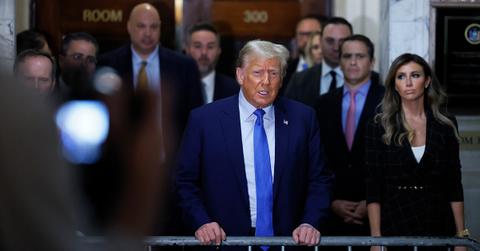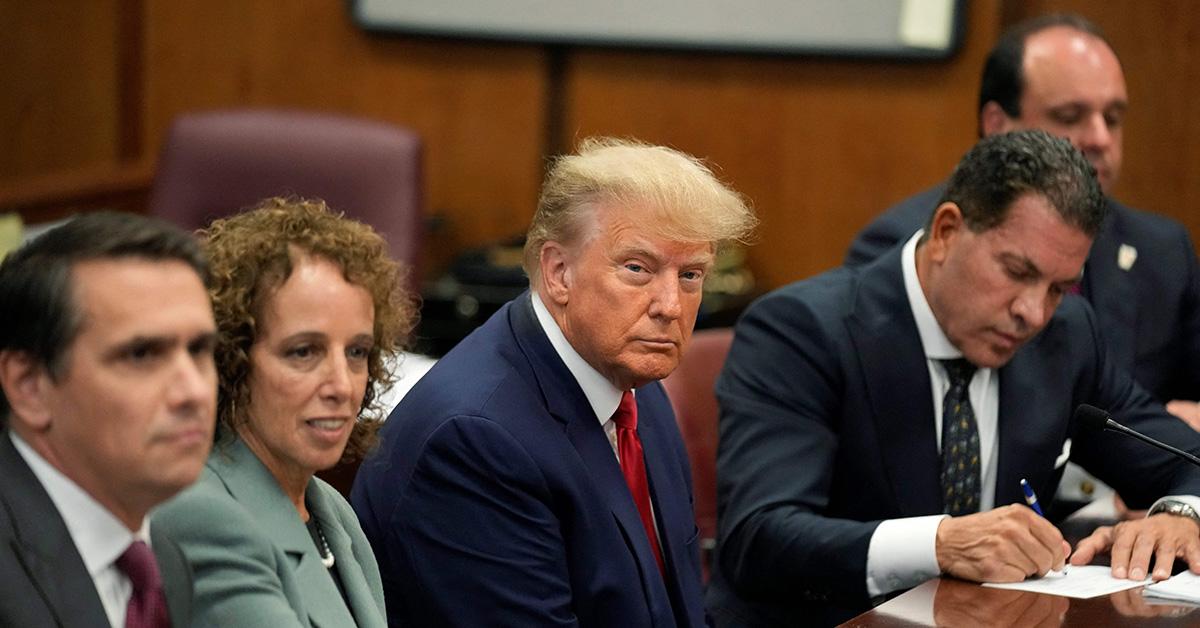Donald Trump Isn't Able to Pay His $454 Million Bond for Fraud in New York
If the panel doesn't approve the request to avoid posting the bond, Attorney General Letitia James could begin seizing Trump's assets on March 25.
Published March 19 2024, 11:41 a.m. ET

Former President Donald Trump has made his name in part on his claim that he's a wildly successful businessman. Following a string of legal defeats, though, it's looking more and more like the former Apprentice host may actually be short on cash.
In mid-March 2024, Trump announced that he wasn't able to put up a $454 million bond in his civil fraud case in New York. The bond would have allowed him to appeal the decision, and would also have prevented the New York attorney general from seizing his real estate assets to satisfy the judgment. Following that announcement, many want to know whether Donald Trump may actually be broke.

Is Donald Trump broke?
It seems unlikely that Trump will ever find himself in a position where he isn't able to afford his next meal, but it's clear from recent news that Trump is under significant financial strain. The news of this strain became most clear thanks to a filing Trump made in court on March 18. In the filming, Trump said that it had proved to be "impossible" to obtain the money for the bond.
This doesn't just mean that Trump didn't already have the $454 million bond on hand. It also means that he wasn't able to obtain a loan substantial enough to pay the bond, suggesting that most major lenders don't think much of the assets he could have put up as collateral against the loan.
The filming asks a panel of five Manhattan appeals court judges to let Trump avoid posting the bond while he continues appealing the decision that forced him to pay the money.
If the panel doesn't approve the request, Attorney General Letitia James could begin seizing Trump's assets as soon as March 25.
Trump claimed during a deposition last year that he had “substantially in excess of $400 million in cash.” The 5,000-page court filing he recently filed suggests otherwise, though, and seems to suggest that some of Trump's properties could soon belong to New York state.
Trump's financial hardships speak to the shakiness of his business operations.
Although Trump's image as a successful businessman is unshakeable in the heads of many, his inability to produce the cash necessary in this case suggests what many have long suggested, which is that Trump's businesses are much less successful than he would like the public to believe.
In fact, the reason he was ordered to pay such a vast sum to begin with is because he was found guilty of defrauding lenders by inflating the value of his own properties.
Trump, who is in line to receive the Republican nomination for president this year, will likely be in a close race to resume his control of the presidency. If he does win the election and gets a second term, it seems distinctly possible that many of his current legal and financial woes will become less of a problem. After all, Trump's first term as president was reportedly very profitable for him and his family.